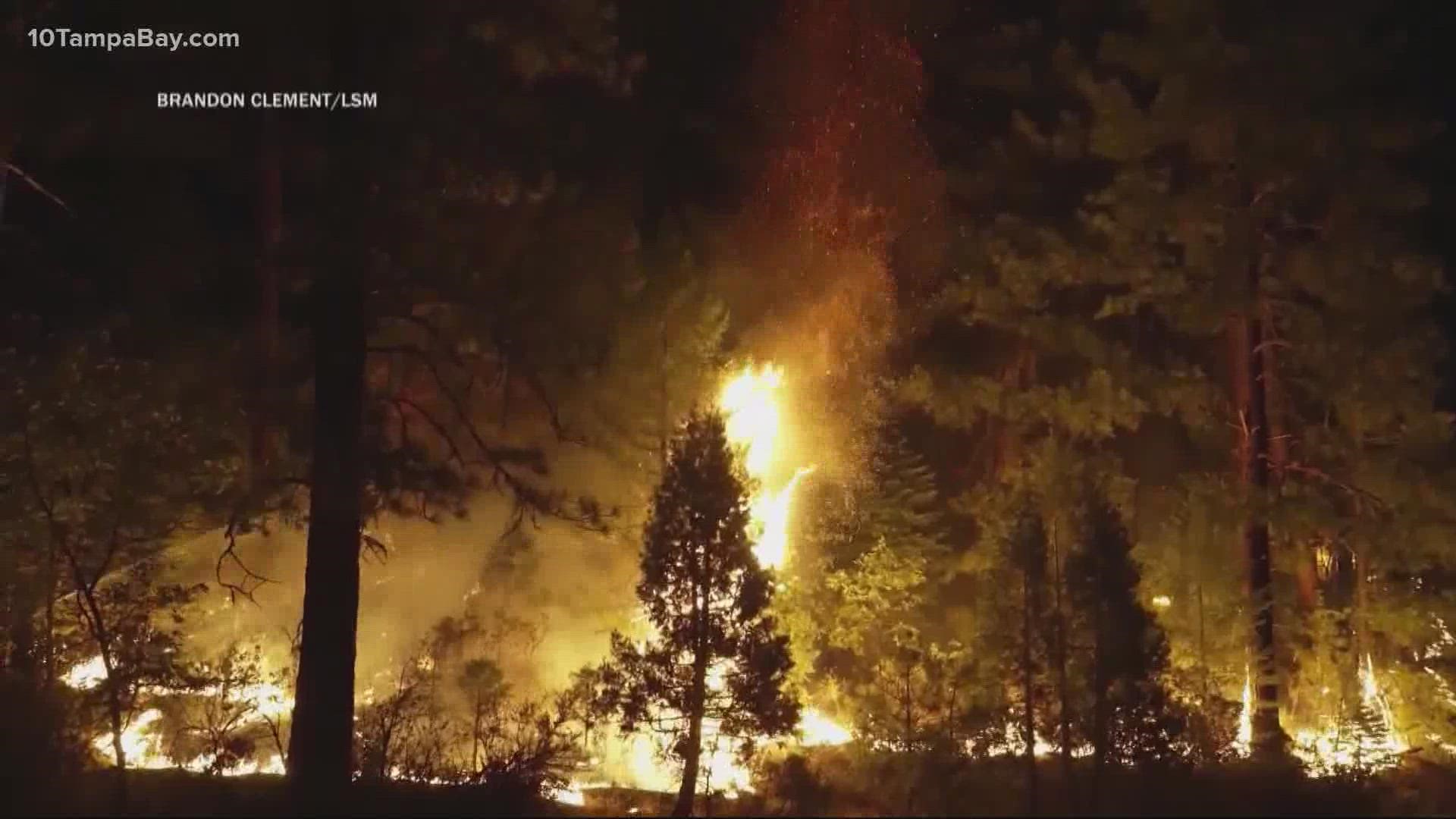ST. PETERSBURG, Fla. — Over the last several decades, extreme droughts are leading to longer wildfire seasons.
As a result, the impacts left behind by wildfires on our environment and the risks associated with our health continue to grow. Unfortunately, our changing climate plays a crucial role.
Every year, you have likely seen footage of firefighters working endlessly to contain a racing wildfire as residents flee their homes. Wildfires are now burning six times as many acres compared to the last several decades, with the fire season lasting nearly three months longer than they did in the 1970s.
And while the threat is greater out west, impacts left behind to our health and to the environment are an issue for the entire planet.

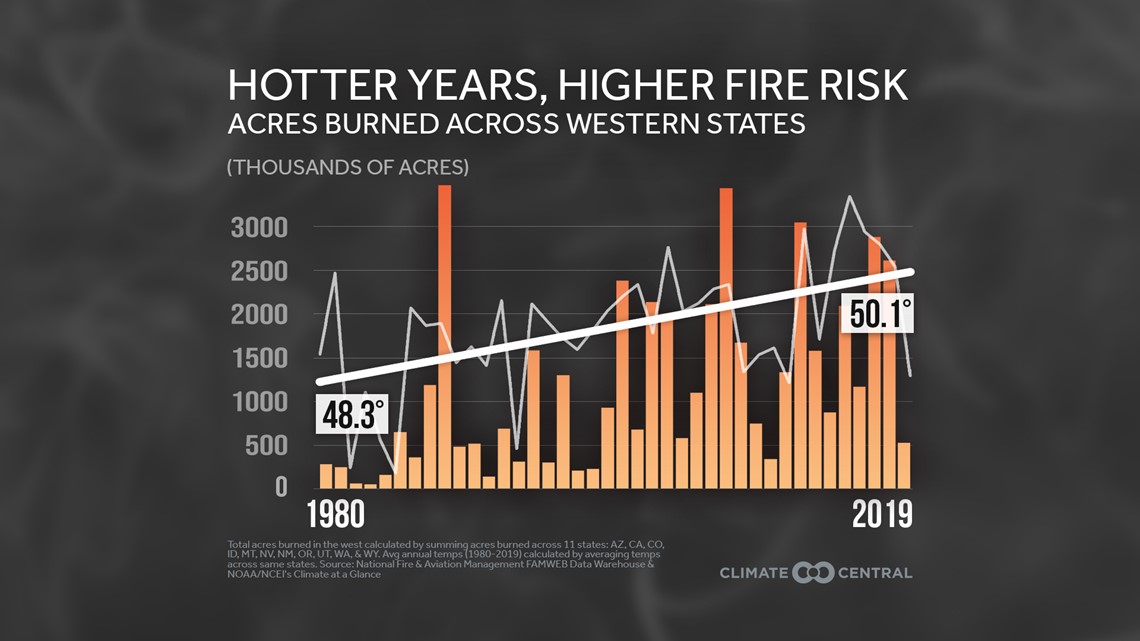
Believe it or not, 80-percent of fires are caused by human activities. However, our warming climate is only making these situations worse. The combination of higher temperatures and limited precipitation leads to drier forests and vegetation.
This makes it more difficult to put out these fires, especially if high winds are involved.

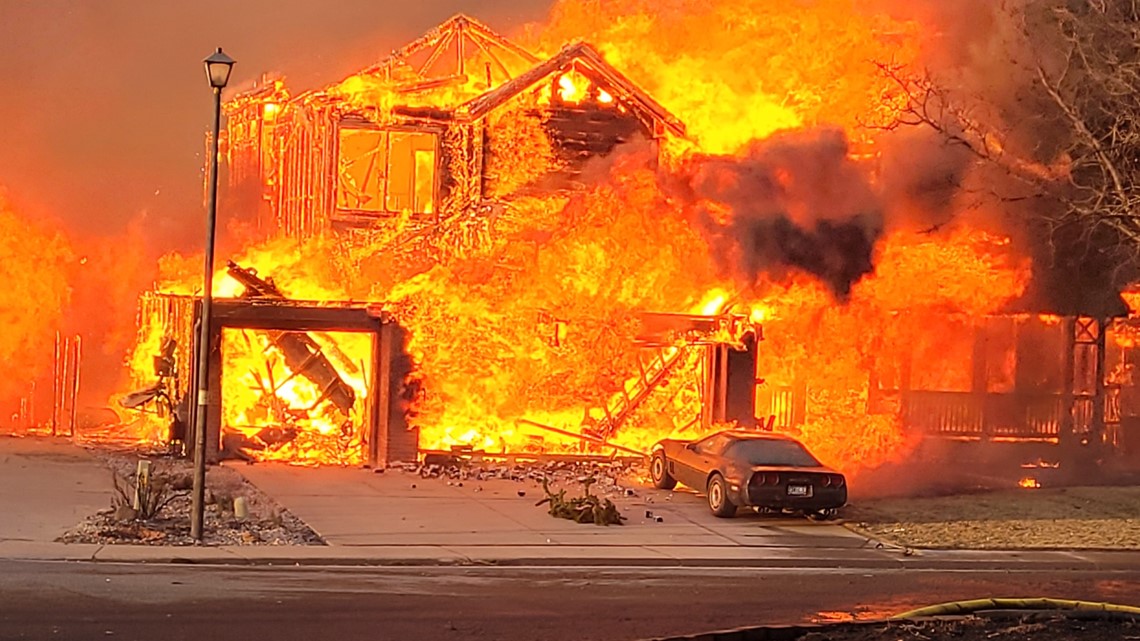
We saw this situation play out just recently with the devastating Marshall Fire in Colorado in December 2021. The intensity, high heat and strong winds caused a rapidly spreading wildfire to go down as the most destructive fire in Colorado’s history.
Wildfires are actually a natural process for many ecosystems. While fires release heat-trapping greenhouse gases, the vegetation that takes over a burned region can remove carbon from our atmosphere and essentially have a neutral effect on our climate.

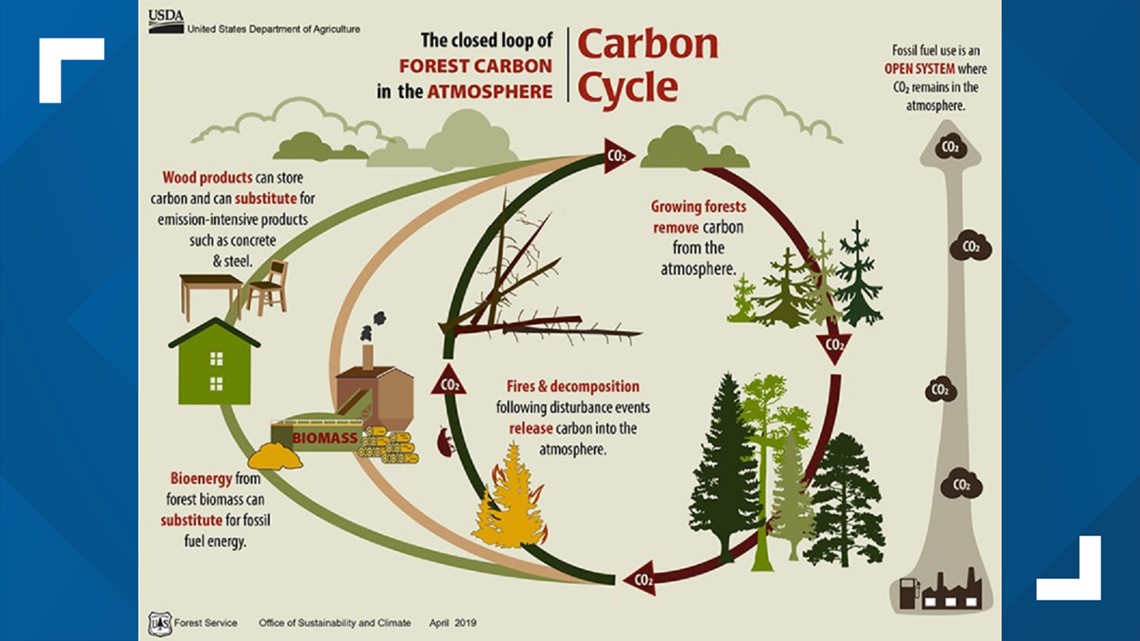
However, when fires are larger and more frequent, greenhouse gases can’t be removed from the atmosphere if trees don’t grow back in time before burning in the next fire.
Then there's a risk to public health. Not only can the air quality from smoke lead to respiratory concerns, but carcinogens can contaminate both the air and water sources.

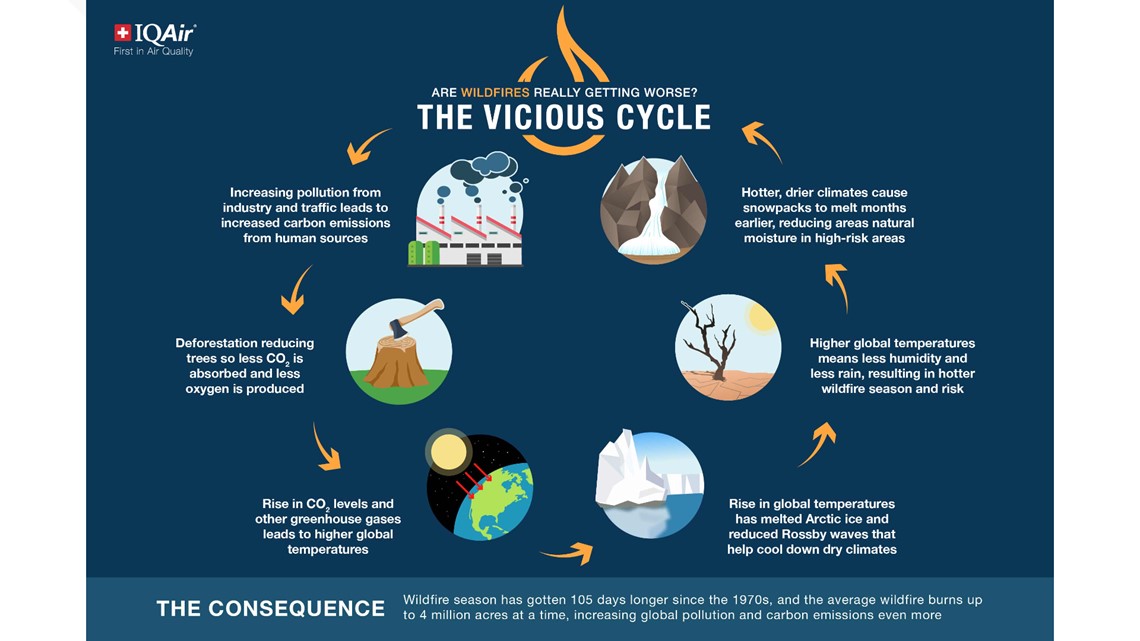
A few ways we can combat this trend, No. 1: reduce greenhouse gas emissions! The less we can emit those heat-trapping gases into our atmosphere, the better. Also, developing less in fire-prone areas, as well as taking proactive measures in removing dead vegetation, which acts as fuel to the fires.
At the end of the day, climate change may not be what causes fires, but it does make conditions prime for more extreme and devastating fire events.

